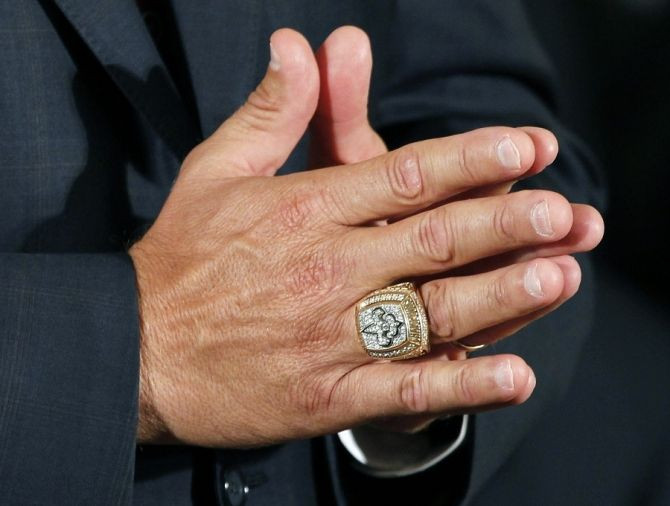Ring Finger Length May Predict Prostate Cancer Survival

Men with short ring fingers may a better chance of surviving prostate cancer, according to a new study.
The latest findings show that cancer victims responded better to an anti-tumor drug if their ring finger was shorter than their index finger.
Scientists explain that previous findings show that men with short ring fingers are thought to have lower levels of the hormone testosterone, which is known to help prostate tumors grow.
Korean medical researchers tested the theory on 142 participants aged 40 and younger and found that men with short ring fingers responded better to dutasteride, a drug that combats cancer by blocking the effects of testosterone on the prostate.
Previous research has also linked finger length to the risks of conditions like heart disease, osteoarthritis, depression and Motor Neuron Disease.
Experts say that the difference in length between the two fingers is determined by the amount of testosterone a baby is exposed to while it is still in the womb, and researchers believe that the difference in finger length can have a significant effect on health later in life.
While men generally have longer ring fingers, women tend to have ring and index fingers that are similar in length. However, the length between the two fingers varies from one person to another.
Over 214,000 men are diagnosed with prostate cancer every year in the U.S. and nearly 28,000 men die from it.
The risk for prostate cancer increase with age and although it is rarely found in men younger than 40, it is the most common cause of death from cancer in men over the age of 75.
A common problem in almost all men as they age is an enlarged prostate called benign prostatic hyperplasia, or BPH, and while it is not known to raise the risk of prostate cancer it can increase PSA levels, a measure used to screen men for prostate cancer. BPH is a condition that is prevalent in men over the age of 50 where the prostate grows and blocks the flow of urine.
However the latest findings from Seoul National University in South Korea suggest that healthcare providers might soon be able to predict who will respond best to treatment by measuring men's ring and index fingers.
While the men in the latest study, published in the British Journal of Urology, did not have cancer, they did have enlarged prostates or BPH.
Doctors have for many years prescribed dutasteride to treat BPH and prostate cancer, and participants in the study took the drug every day for half a year.
Results from the study showed that there was a significantly larger reduction in men with short ring fingers after the six-month treatment compared to men with long ring fingers.
"These results suggest finger length might predict the response to dutasteride treatment," study authors concluded.
Published by Medicaldaily.com



























